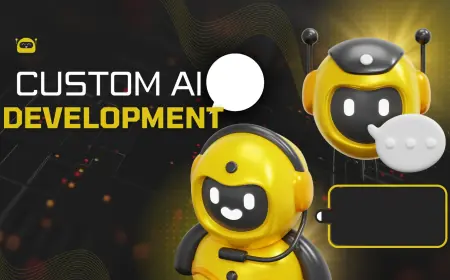Mastering Emotional Intelligence in AI with the Best AI Humanizer
Discover how the best AI humanizer and Answer AI bring emotional intelligence to digital systems, transforming automated interactions.

Artificial intelligence has long been praised for speed, precision, and automation, but one crucial trait separates humans from machines—emotional intelligence. Until recently, automated platforms lacked the ability to recognize or respond to emotion, often leaving users dissatisfied. Now, breakthroughs such as answer ai and the best ai humanizer are changing that narrative. By embedding empathy, contextual sensitivity, and adaptive responses into systems, these tools make digital assistants not just smarter, but also more emotionally aware.
Understanding Emotional Intelligence in Technology
Defining Emotional Awareness
Emotional intelligence refers to the capacity to perceive, interpret, and respond to emotional cues. When integrated into AI, this ability creates systems that adapt tone, vocabulary, and rhythm based on user sentiment. The best ai humanizer ensures interactions feel organic, recognizing when users need reassurance, encouragement, or precision.
Historical Limitations of AI
For decades, machines processed language at a surface level. Keywords triggered predefined outputs, often producing answers devoid of nuance. With advances in models like answer ai, automated responses now mirror natural conversation, balancing factual clarity with emotional sensitivity.
Why Emotional Intelligence Matters in AI
Building Trust Through Empathy
Users develop stronger bonds with systems that demonstrate understanding. When AI acknowledges frustration or excitement, it transcends transactional communication. By employing the best ai humanizer, platforms create experiences that resonate emotionally, fostering long-term trust.
Supporting Better Decision-Making
Emotionally intelligent AI can guide users more effectively by identifying stress levels or confusion. This insight ensures the delivery of advice that feels supportive instead of robotic. answer ai adapts to context, offering responses tailored to emotional states.
Core Components of Emotional Intelligence in AI
Contextual Sensitivity
Modern AI no longer stops at literal meaning; it reads intent across full dialogues. Contextual understanding enables assistants to continue conversations naturally, aligning responses with ongoing interactions.
Sentiment Recognition
Recognizing tone is vital. The best ai humanizer integrates sentiment analysis to classify emotions like joy, irritation, or curiosity. Adjusting language accordingly ensures users feel acknowledged.
Adaptive Communication
By evolving through each interaction, answer ai fine-tunes its dialogue style. Over time, it develops a personalized tone for individual users, much like a human companion who remembers preferences and moods.
Real-World Applications of Emotional AI
Customer Engagement
In customer service, empathy is essential. Users often approach with concerns or frustrations, and systems equipped with the best ai humanizer provide thoughtful responses rather than cold replies.
Healthcare and Wellness
In healthcare, emotional intelligence ensures sensitivity in delicate situations. AI that combines accurate information with supportive tone eases patient anxiety. answer ai plays a crucial role in balancing professionalism with compassion.
Learning and Development
Education thrives on encouragement. Emotionally intelligent AI can adapt explanations to match a learner’s confidence, offering positive reinforcement when needed.
Advantages of Humanized Emotional AI
Greater Inclusivity
Not all users share the same communication style. By interpreting diverse emotional cues, assistants become accessible across cultures, ages, and backgrounds. The best ai humanizer ensures inclusivity remains central to design.
Stronger User Retention
When interactions feel natural, users return. Emotional connection drives loyalty. Tools like answer ai deliver continuity, ensuring experiences feel personalized and valuable.
Reducing Frustration
Systems that acknowledge emotion prevent escalation. For example, detecting irritation allows AI to simplify language or expedite solutions, diffusing tension before it grows.
The Future of Emotionally Intelligent AI
Expanding Emotional Range
Future systems will recognize more nuanced emotions—subtle humor, irony, or hesitation. With deeper recognition, the best ai humanizer will deliver increasingly natural exchanges.
Ethical Considerations
Human-like responses also raise ethical challenges. Maintaining transparency is vital to avoid misleading users about whether they are conversing with machines.
Seamless Integration
From workplaces to homes, emotionally intelligent AI will soon feel like an invisible partner. With tools such as answer ai, integration into everyday routines will become effortless.
Conclusion
The era of mechanical replies is ending, giving way to systems that listen, adapt, and empathize. By mastering emotional intelligence, AI becomes more than an assistant—it becomes a relatable partner. Through answer ai and the best ai humanizer, interactions shift from transactional exchanges to meaningful connections. Emotional awareness is no longer a luxury in automation; it is the defining trait of the next generation of intelligent systems.
What's Your Reaction?
 Like
0
Like
0
 Dislike
0
Dislike
0
 Love
0
Love
0
 Funny
0
Funny
0
 Angry
0
Angry
0
 Sad
0
Sad
0
 Wow
0
Wow
0
















































